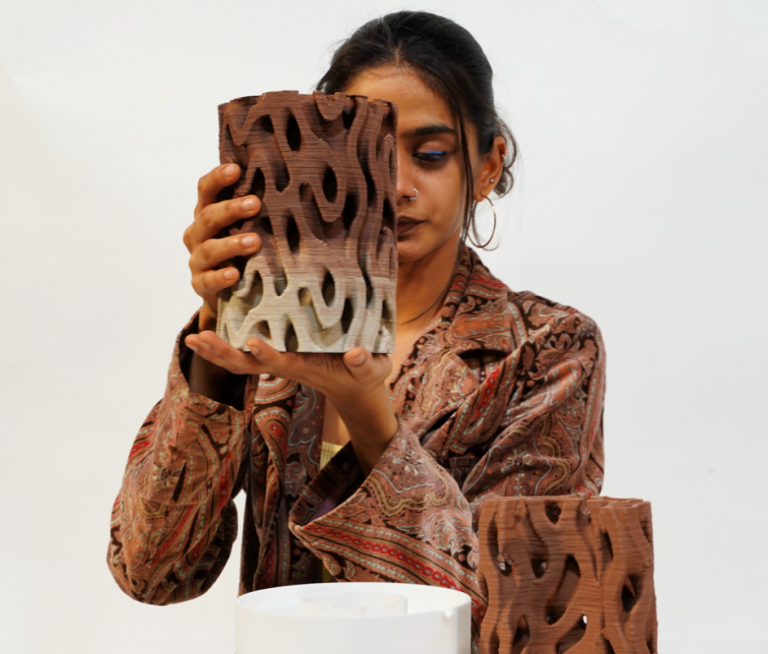Bathroom brand VitrA is presenting the Minimal Matter project, created by up-and-coming designer Rameshwari Jonnalagedda, at this year’s London Design Festival. Hosted in VitrA’s Clerkenwell showroom, Rameshwari’s innovative exhibition explores the potential of minimal surfaces in providing adaptive and forward-thinking solutions within the built environment.
The Minimal Matter project delves into geometries that enhance structural efficiency while minimising material usage. By experimenting with minimal surfaces through 3D printing, Rameshwari aims to demonstrate how these forms can fulfil a wide range of architectural requirements. The exhibition will feature a collection of 3D printed ceramic pieces at VitrA’s showroom, showcasing prototypes of minimal surfaces with diverse geometric configurations.
Minimal surfaces are characterised by their high surface area-to-volume ratio and inherent cellular structures. These features offer lightweight yet robust frameworks, maximising material efficiency without compromising strength. Minimal Matter investigates how the porosity and cellularity of these surfaces can be manipulated to create adaptable designs tailored to specific environmental and functional needs. A key aspect of creating these structures is additive manufacturing, or 3D printing, which enables the production of complex forms. Sustainable materials, such as stone white clay and red earthen terracotta, were selected for their suitability for 3D printing and their ability to create the desired porous structures.
Above: Close-up of Rameshwari Jonnalagedda’s 3D printed ceramics, image courtesy of Rameshwari Jonnalagedda
The Minimal Matter exhibition features prototypes of minimal surfaces designed for a variety of uses, including façade panels that regulate heat, air, and light, improving energy efficiency and occupant comfort. These high-surface geometries also promote bio-receptivity by fostering microhabitats for small organisms and supporting plant growth. Integrating these designs into urban environments could significantly enhance biodiversity and support biophilic design, embedding living ecosystems within cityscapes.
“Rameshwari Jonnalagedda’s Minimal Matter project demonstrates the vast potential of minimal surfaces in shaping sustainable and functional architectural designs, while igniting essential discussions around the future of building design and its environmental implications,” said Ruth Davies, Marketing Director of VitrA UK. “VitrA is thrilled to support Rameshwari’s innovative work as part of our ongoing commitment to championing sustainable design and fostering dialogue among emerging designers.”
For more details on VitrA’s sustainability initiatives, please visit https://www.vitra.co.uk/about-us/sustainability/.
More news from VitrA


